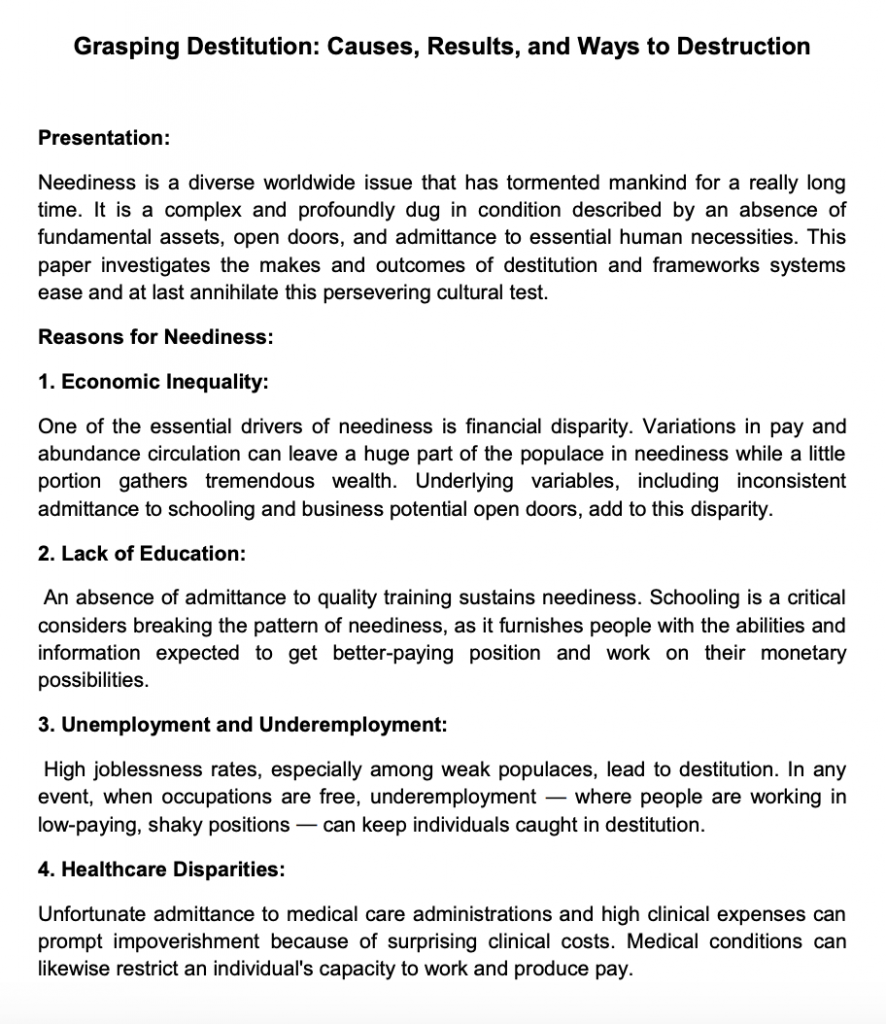Understanding Poverty
Summary:
The note titled “Understanding Poverty” provides a comprehensive analysis of poverty, its causes, consequences, and potential solutions. The document describes poverty as a complex, deeply entrenched issue characterized by a lack of basic resources and opportunities. It identifies key causes of poverty, such as economic inequality, lack of education, unemployment and underemployment, healthcare disparities, and discrimination and social exclusion. Economic inequality is emphasized as a significant factor, where income and wealth distribution disparities contribute to poverty. Lack of education perpetuates the cycle, limiting individuals’ ability to secure better-paying jobs. Healthcare disparities and high medical costs can lead to impoverishment, while discrimination based on factors like race or gender can further marginalize individuals.
The paper also outlines the dire consequences of poverty, including limited access to necessities like food and healthcare, educational barriers, health inequalities, social disintegration, and economic stagnation. It suggests that poverty can lead to various social issues, including crime and substance abuse, and hinder economic development.
The document recommends investing in education, creating employment opportunities, implementing universal healthcare, establishing social security nets, and promoting empowerment and inclusion to combat poverty. It concludes by stating that eradicating poverty requires collective efforts at individual, community, and systemic levels, and by implementing targeted policies and fostering a culture of inclusion, societies can aim for a future free from the constraints of poverty.
Excerpt:
Understanding Poverty
Grasping Destitution: Causes, Results, and Ways to Destruction
Presentation:
Neediness is a diverse worldwide issue that has tormented mankind for a long time. It is a complex and profoundly dug-in condition described by an absence of fundamental assets, open doors, and admittance to essential human necessities. This paper investigates the makes and outcomes of destitution and frameworks systems ease and, at last, annihilate this persevering cultural test.
Reasons for Neediness
1. Economic Inequality:
One of the essential drivers of neediness is financial disparity. Variations in pay and abundance circulation can leave a huge part of the populace in neediness while a little portion gathers tremendous wealth. Underlying variables add to this disparity, including inconsistent admittance to schooling and business potential open doors.


Reviews